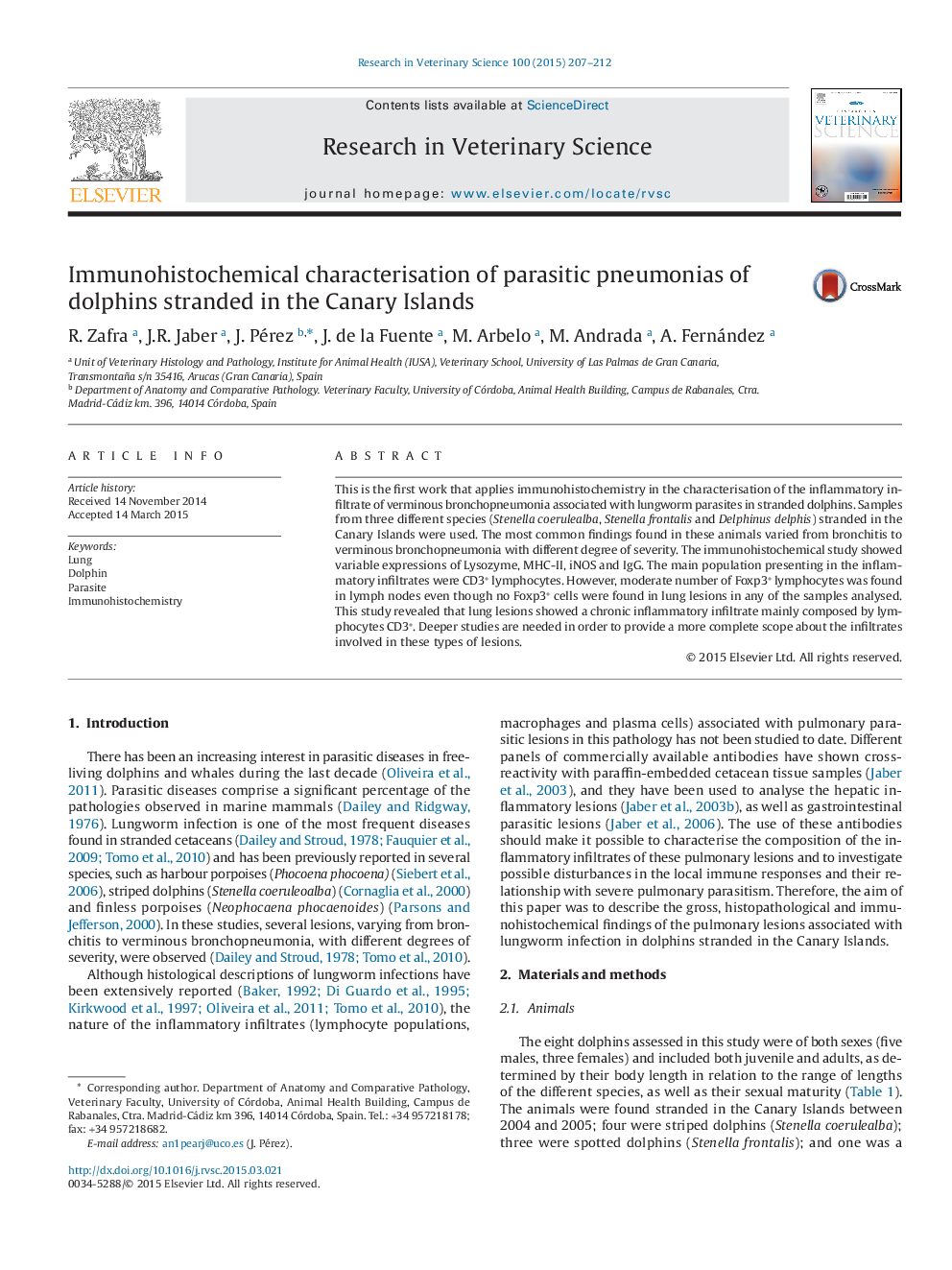| Article ID | Journal | Published Year | Pages | File Type |
|---|---|---|---|---|
| 5794689 | Research in Veterinary Science | 2015 | 6 Pages |
â¢First immunohistochemical study applied to lungworm lesions of stranded dolphins.â¢Six primary antibodies were used (CD3, Foxp3, Lysozyme, MHC-II, iNOS and IgG).â¢Strong cellular immune response found (CD3+ lymphocytes and few IgG+ plasma cells).â¢Absence of Foxp3+ lymphocytes (lungworm may down regulate Treg recruitment).
This is the first work that applies immunohistochemistry in the characterisation of the inflammatory infiltrate of verminous bronchopneumonia associated with lungworm parasites in stranded dolphins. Samples from three different species (Stenella coerulealba, Stenella frontalis and Delphinus delphis) stranded in the Canary Islands were used. The most common findings found in these animals varied from bronchitis to verminous bronchopneumonia with different degree of severity. The immunohistochemical study showed variable expressions of Lysozyme, MHC-II, iNOS and IgG. The main population presenting in the inflammatory infiltrates were CD3+ lymphocytes. However, moderate number of Foxp3+ lymphocytes was found in lymph nodes even though no Foxp3+ cells were found in lung lesions in any of the samples analysed. This study revealed that lung lesions showed a chronic inflammatory infiltrate mainly composed by lymphocytes CD3+. Deeper studies are needed in order to provide a more complete scope about the infiltrates involved in these types of lesions.
